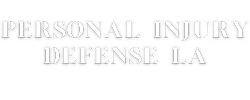Charges: Criminal vs. Civil Law
Criminal Law and Civil Law are the two bodies of law in the United States. Their purpose is to deter or punish wrongdoings or to compensate victims of wrongdoings.
What Are Criminal Law and Charges?
The body of law known as Criminal Law applies to criminal acts. A criminal act occurs when an individual or entity fails to heed and follow a particular criminal statute and breaks the law. Being penalized under criminal law penalties often means the loss of an individual’s rights and can include imprisonment.
Some common criminal charges include:
- Assault and Battery
- Murder
- Burglary
- Theft and Larceny
- DUI or DWI
- Drug Possession
Other criminal charges include:
- Arson
- Bribery
- Aiding, Abetting, and Accessory to Crime
- Child Abandonment and Abuse
- Voluntary and Involuntary Manslaughter
- Attempted murder
- First-degree and Second-degree Murder
- Kidnapping
- Money Laundering
- Child Pornography
- Racketeering / RICO
- Rape
- Sexual Assault
- Securities Fraud
- Insurance Fraud
- Tax Evasion / Fraud
- Credit / Debit Card Fraud
- Wire Fraud
- Telemarketing Fraud
- Computer Crime
- Conspiracy
- Perjury
- Disturbing the Peace
- Domestic Violence
- Probation Violation
- White Collar Crimes
- Prostitution
- Public Intoxication
- Solicitation
- Stalking
- Shoplifting
- Statutory Rape
- Vandalism
- Criminal Contempt of Court
- Embezzlement
- Extortion
- Forgery
- Harassment
- Hate Crimes
- Homicide
- Cyber Bullying
- Disorderly Conduct
- Drug Manufacturing and Cultivation
- Drug Trafficking / Distribution
- Identity Theft
- Indecent Exposure
- Public Intoxication
- Pyramid Schemes
- Robbery
- Statutory Rape
What Are Civil Laws and Charges?
Civil laws involve the resolution of legal controversies and include monetary damages. Civil courts handle a wide range of charges and cases involving various legal issues. Civil cases may consist of such things as:
- Tort Claims
- Breach of Contract Claims
- Equitable Claims
- Landlord/Tenant Issues
Some wrongdoings may be both public offenses and private injuries and may result in both criminal and civil charges. For example, a defendant might be acquitted of murder charges, but also be found liable in a wrongful death lawsuit.
What Are Torts?
A “tort” is a wrongful, or “tortious,” act that results in injury to someone’s person, property, or reputation. The injured party is typically entitled to compensation. Cases involve claims for such things as:
- Personal Injury
- Negligence
- Defamation
- Defamation
- Medical Malpractice
- Fraud
- And many others
Why Hire a Personal Injury Defense Attorney?
When you need personal injury defense legal advice, your best bet may be to turn to a personal injury defense attorney. Personal injury defense lawyers can interpret local liability laws and investigate your role, if any, in a tort claim. An attorney can help to orchestrate your best defense strategy to minimize the amount of damages for which you may be liable, or eliminate monetary damages completely.
Personal injury lawyers work with a host of clients including property owners, construction companies, insurance providers, manufacturers, and various healthcare providers. Frequently, personal injury cases are settled out of court. It may be in your best interest to have a lawyer with years of experience in handling personal injury defenses.
Contact an attorney in your local area and set up a consultation. The personal injury defense legal advice you get may make a huge difference in the outcome of your case. Call today to get started on your defense strategy.
